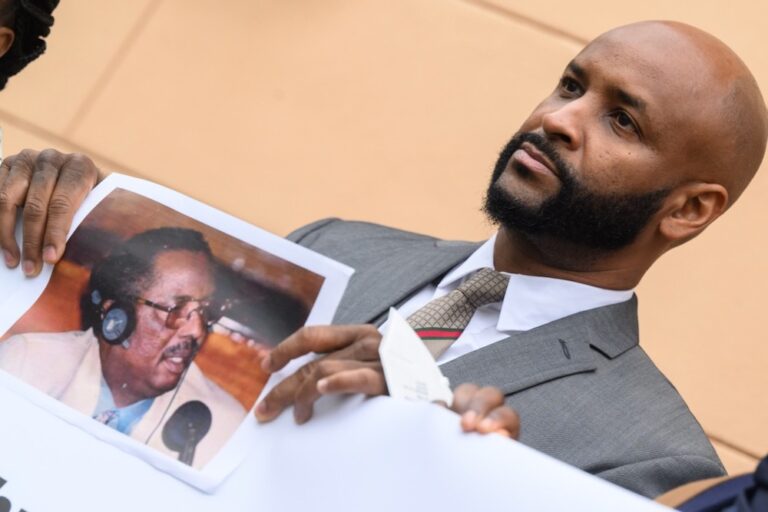(IPI/IFEX) – The following is an IPI press release: Vienna, 9 March 2001 IPI Releases Report on Gambian National Media Commission Bill, 1999 The International Press Institute (IPI) today released a report examining the repressive provisions contained in the National Media Commission Bill, 1999 (“NMCB, 1999”). A Bill that the government of President Yahya A.J.J. […]
(IPI/IFEX) – The following is an IPI press release:
Vienna, 9 March 2001
IPI Releases Report on Gambian National Media Commission Bill, 1999
The International Press Institute (IPI) today released a report examining the repressive provisions contained in the National Media Commission Bill, 1999 (“NMCB, 1999”). A Bill that the government of President Yahya A.J.J. Jammeh intends to enact into law in the near future as a means of regulating the activities of the Gambian media.
According to IPI’s report, there are fundamental flaws in the NMCB, 1999 that need to be immediately addressed. Many of the provisions are in direct opposition to accepted practices in this area and, if passed into law, the proposed legislation will have a detrimental effect on press freedom and freedom of expression in Gambia.
Of particular concern is the decision to pass legislation in this field. IPI firmly believes that the printed press in Gambia should be separated from the electronic media and allowed to regulate their own proceedings, thus creating an independent body to review complaints. A failure to carry this out would have a severe impact on the Gambian media scene and leave the media prey to manipulation and coercion by political institutions.
Aside from these fears, questions arising from the composition, competence and impartiality of the Commission mean that journalists will be unable to receive a fair hearing before the body. In consequence, the profession of journalism will receive unequal treatment before the law. Elsewhere, the power under the proposed legislation to award penalties, create registers, suspend journalists and media outlets and, in certain cases, impose prison sentences are powers that fly in the face of accepted international practices. The decision to include these powers would appear to be motivated by a desire to control the journalism profession and rein in the free flow of information.
Furthermore, such powers should be seen in conjunction with the failure of the proposed legislation to include a proper appeals system – a fact that can only serve to increase the fear that there will be miscarriages of justice. Another concern is the desire of the government to give the Commission the power to undertake investigations into complaints. This desire, matched by the attendant powers to seize documents and force journalists to reveal information, will undermine the essential notion that journalists have a right not to reveal the sources of their information. If made into law, these provisions will give the Commission overwhelming powers and would negate the press freedom that currently exists in Gambia.
When viewed as a whole, the tone of the legislation is of a government seeking control over the media. Indeed, it is quite clear from reviewing the legislation that journalists, and the media in general, are to be separated out and treated differently from every other sector of Gambian society. As a result, journalists will be divested of many of the rights and protections that are afforded to other groups and individuals in a democratic society.
The report may be reviewed on IPIâs website: http://www.freemedia.at/r_gambia.htm


